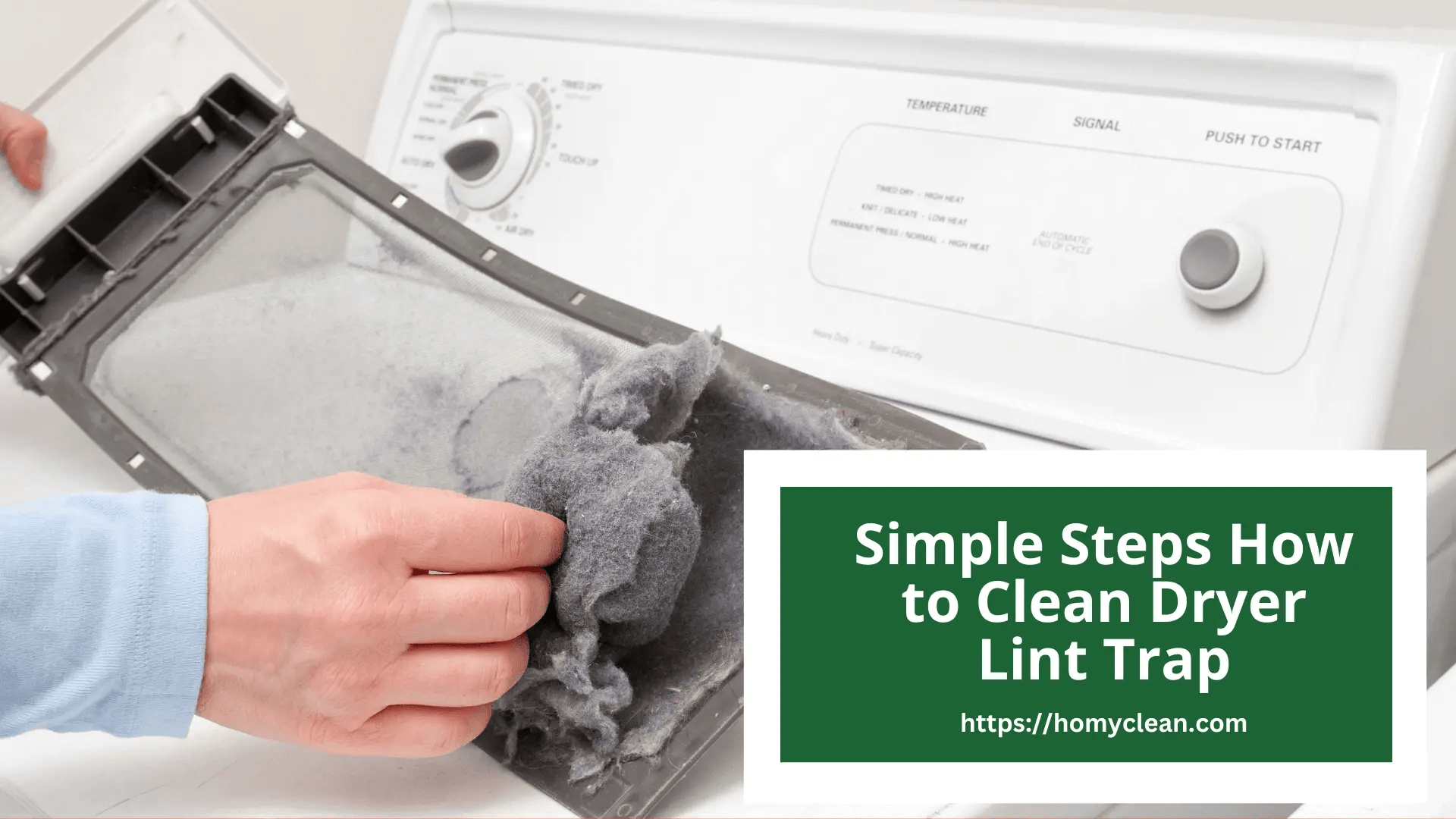Rats are unwelcome visitors in any home, especially when they invade our appliances like washing machines. To protect your valuable appliance and maintain a hygienic laundry area, here are 20 practical tips to keep rats away and prevent potential infestations.
How to Protect Washing Machine From Rats
1. Maintain a Clean Area Around the Washing Machine
A tidy space deters rats. Remove food and debris that can attract them and provide nesting opportunities.
2. Properly Store Food
Rats can chew through packaging. Use secure, airtight containers to store food items.
3. Seal Holes and Cracks in Walls
Rats can slip through tiny openings in walls and floors. Seal these gaps to block their access.
4. Install Door Sweeps
Door sweeps effectively block rat entry through door gaps, helping protect your home and washing machine.
5. Use Steel Wool
Rats can’t chew through steel wool. Use it to block small holes and gaps that may serve as entry points.
6. Consider a Rat Zapper
A rat zapper is an electronic device that swiftly eliminates rats. Placing one near the washing machine can discourage nesting.
7. Set Rat Traps
Strategically position rat traps around the washing machine to capture rats before they nest.
8. Employ Peppermint Oil
Rats dislike the smell of peppermint oil. Spraying it around the washing machine can help deter them.
9. Try Mothballs
Mothballs are known to repel rats. Place them near the washing machine to discourage rat presence.
10. Use Ammonia
Rats dislike the smell of ammonia. Placing bowls of ammonia around the washing machine can help keep them at bay.
11. Utilize Vinegar
Vinegar is a natural cleaner and rat repellent. Spraying vinegar around the washing machine can help deter rats.
12. Install Ultrasonic Repellers
Ultrasonic repellers emit high-frequency sounds that deter rats. Install them around the washing machine.
13. Employ Cat Litter
Cat litter contains rat-repelling chemicals. Position it around the washing machine to deter rats effectively.
14. Consider Snake Repellent
Snake repellent contains rat-deterring chemicals. Apply it around the washing machine to discourage rats.
15. Use Aluminum Foil
Rats dislike the sound and texture of aluminum foil. Lay it around the washing machine to deter them.
16. Try Bleach
Bleach is a potent cleaner and rat repellent. Spraying it around the washing machine can deter rats effectively.
17. Use Eucalyptus Oil
Eucalyptus oil, an essential oil, repels rats. Spray it around the washing machine to deter rats from the area.
18. Employ Bay Leaves
Bay leaves are recognized rat repellents. Position them near the washing machine to discourage rat presence.
19. Maintain a Clean Area
Rats are attracted to dirty and cluttered spaces. Keep the area around the washing machine clean and clutter-free to deter nesting.
20. Consider Professional Exterminators
If other methods prove ineffective, hire a professional exterminator to eliminate rats near the washing machine. They can identify the source of the issue and offer effective solutions for rat prevention.
Relevant Topic: How to protect Rat from a Bosch Washing Machine
Anti-Rat Cover for Washing Machine
An anti-rat cover serves as a protective barrier to prevent rats and rodents from infiltrating and nesting inside your washing machine. This durable device, typically made of materials like stainless steel or plastic, effectively keeps these pests at bay, safeguarding your appliance’s hygiene and functionality.
How to Use an Anti-Rat Cover for Washing Machine
- Prepare the Area: Before installation, ensure the washing machine’s surroundings are clean and free of any potential rat attractants.
- Measure and Align: Measure the dimensions of the openings or gaps on your washing machine. Select a cover size that snugly fits over these areas.
- Installation: Place the cover over the openings, ensuring proper alignment and complete coverage of potential entry points.
- Secure Fit: Some covers may require straps, hooks, or clips for secure fastening. Follow the manufacturer’s instructions to achieve a tight fit.
- Regular Inspection: Periodically check the cover for signs of wear or damage. Replace it as necessary to maintain its effectiveness.
Benefits of Using an Anti-Rat Cover:
- Rodent Prevention: Effectively keeps rats and rodents out of your washing machine, preventing damage and potential malfunctions.
- Hygiene Maintenance: Reduces the risk of contamination and the spread of diseases carried by rodents.
- Appliance Protection: Shields sensitive components of your washing machine from rodent-related damage, potentially extending its lifespan.
- Cost Savings: Prevents the need for costly repairs or replacements due to rodent activity.
- Peace of Mind: Provides reassurance that your washing machine remains rat-free and functions optimally.
- Ease of Installation: Simple installation process without requiring specialized tools or skills.
- Durable Material: Made from sturdy materials that rats can’t easily chew through, ensuring long-lasting protection.
- Low Maintenance: Requires minimal upkeep, with periodic checks to ensure the cover remains intact.
- Environmentally Friendly: A humane solution that avoids the use of harmful rodenticides.
How Can Mice Get Inside My Washing Machine?
Mice can access washing machines through small openings or gaps in the laundry area. They possess the ability to squeeze through tiny spaces and may enter the machine seeking warmth, shelter, or food residues. Once inside, they can cause damage to wires, hoses, and other components.
To prevent mice from entering your washing machine, it’s vital to seal any openings, maintain a clean environment, and utilize deterrents. Regular inspections and maintenance will help keep mice at bay and protect your washing machine.
Signs of Rat Infestation in the Washing Machine
Before implementing strategies to keep rats away from your washing machine, it’s essential to recognize the signs of a potential rat infestation within the appliance. These signs may include:
- Unusual Noises: Strange noises emanating from the washing machine, such as scratching or scuttling sounds.
- Sudden Malfunctions: The machine abruptly stops working without apparent mechanical issues.
- Chewed Wires and Hoses: Visible damage to electrical wires and hoses, often bearing distinct bite marks.
- Foul Odor: A persistent foul odor emitting from the washing machine, often caused by rat droppings or urine.
- Presence of Droppings and Urine: Discovery of rat droppings and urine inside or around the washing machine.
Understanding these signs is crucial for timely intervention and prevention of further damage or contamination.
Understanding Rat Behavior
To effectively deter rats from your washing machine, it
‘s essential to comprehend their behavior. Rats are drawn to areas offering food, water, shelter, and warmth. They possess the ability to infiltrate through small openings, climb walls and pipes, and are adept swimmers.
How to Get Rid of Rats in the Washing Machine
To address a rat infestation within your washing machine, consider the following steps:
- Identify Entry Points: Determine how rats are gaining access to the washing machine, such as through hoses, drain pipes, electrical cords, or gaps.
- Trap and Remove: Set humane rat traps near the machine’s entry points to capture rats alive. Relocate them away from your home.
- Clean and Sanitize: Thoroughly clean and sanitize the washing machine’s interior to eliminate rat droppings, urine, and odors.
- Seal Entry Points: Seal off any openings or gaps that rats were using to enter the machine.
- Prevent Reentry: Implement preventive measures, such as using repellents or protective covers, to discourage rats from returning.
Addressing the Smell of a Dead Rat in the Washing Machine
If you encounter the unpleasant smell of a dead rat in your washing machine, follow these steps to address the issue:
- Locate the Source: Inspect the interior of the machine, especially the drum and hidden compartments, to locate the source of the smell.
- Remove Remains: Use gloves and a damp cloth to remove any visible remnants of the dead rat.
- Clean and Disinfect: Clean the affected areas with a mild bleach solution or a commercial washing machine disinfectant.
- Deodorize: Run a hot water cycle in the machine without any clothes, adding a cup of white vinegar to help neutralize lingering odors.
- Additional Odor Control: Consider using odor-absorbing products like activated charcoal or baking soda to further mitigate the smell.
By following these steps, you can effectively eliminate the odor and maintain a fresh laundry experience, ensuring your washing machine remains free of rat-related issues.
How Can Mice Chew Washing Machine Hoses?
Mice can chew washing machine hoses due to their sharp incisors and the need to constantly gnaw on objects to keep their teeth from growing too long. The hoses often provide a convenient material for them to chew on, causing damage that may lead to leaks or malfunctions.
To prevent mice from damaging washing machine hoses:
- Seal Openings: Seal any openings or gaps around the hoses where mice may enter.
- Store Food Properly: Keep the laundry area free of food residues and store food in secure containers.
- Regular Inspection: Periodically inspect the hoses for signs of damage and replace them if needed.
Taking these precautions will help safeguard your washing machine hoses from rodent-related damage.
The Risks of Rat Infestation in the Washing Machine
A rat infestation in the washing machine poses several risks, including:
- Costly Repairs: Rats can chew through wires and hoses, leading to expensive repairs or replacements.
- Machine Damage: Rat droppings and urine can damage the washing machine’s interior components.
- Foul Odor: The presence of rats can result in a foul odor emanating from the machine.
- Disease Spread: Rats may carry diseases, and their droppings and urine can pose health risks to humans.
By implementing rat prevention measures, you can mitigate these risks and maintain a clean and functional washing machine.
How to Keep Rodents Out of Appliances
Preventing rodents from infiltrating appliances is essential to avoid disruptions in your household. To keep rodents out:
- Maintain Cleanliness: Keep appliances clean and free of food residues to deter rodent attraction.
- Frequent Inspection: Regularly inspect appliances for potential entry points, such as gaps or holes.
- Secure Entrances: Seal openings using wire mesh or caulking to effectively block rodent access.
Additionally, consider using deterrents like mothballs or cotton balls soaked in peppermint oil inside your appliances, as rodents dislike these scents. Keeping your home clutter-free also reduces hiding places for rodents. By taking these measures, you can protect your appliances from rodent intrusions.
How Rodents Damage Home Appliances
Rodents can cause significant damage to home appliances if left unchecked. They primarily damage appliances by:
- Chewing Through Parts: Rodents gnaw on wires, hoses, and other components, leading to malfunctions and electrical issues.
- Causing Leaks: Damage to hoses and pipes can result in water leaks, damaging appliances and surrounding areas.
- Contamination: Rodent droppings and urine can contaminate appliances and stored items, leading to foul odors and health risks.
To prevent these types of damage, it’s crucial to keep rodents away from appliances through proper maintenance and preventive measures.





